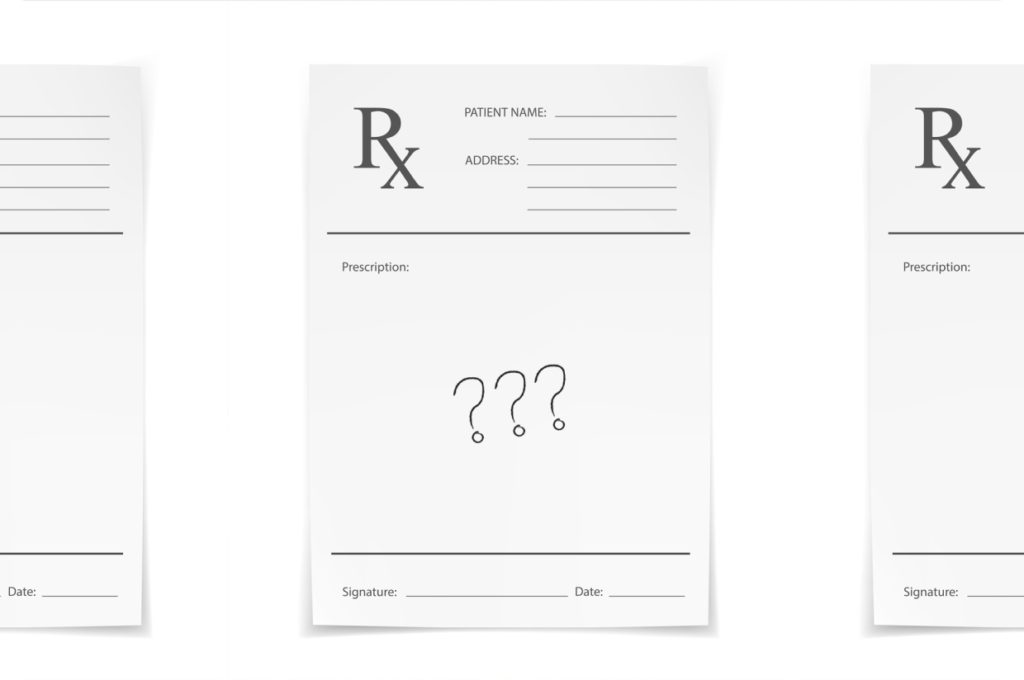Everyone’s weight management journey is going to look a little different, since there are so many factors that impact our weight (i.e., genetics, biology, etc.).
For many, the outdated mentality of ‘eat less, move more’ simply doesn’t work. When you’re looking for weight loss treatments, the question may arise: which is the right choice for you, bariatric surgery or weight loss medications?
Keep reading to help you make sense of the medical weight loss options available to you, as well as weigh the benefits and risks of both choices.

Ready to start your weight loss journey?
Get a personalized treatment plan from a Canadian nurse practitioner 100% online, with free delivery and ongoing support.
If you already think a certain weight loss treatment could be the right choice for you, talk to a healthcare practitioner at Felix. They’ll be able to assess your situation to explore what treatment options could be a beneficial part of your weight management plan.
How Do Weight Loss Medications Work?
Weight loss medications work by helping your body to feel less hunger, which discourages snacking or overeating.
Also, these medications help you to feel full sooner and keep that feeling for longer, so it’s easier to eat smaller portions of food.
If you’re ready to try a new weight loss treatment plan, as part of your weight management journey, complete an assessment with Felix. Your practitioner will be able to determine whether any of the available treatments could be helpful for you.
How Does Bariatric Surgery Work?
This really depends on the type of bariatric surgery you’re having performed.
The most commonly done bariatric surgery in Canada is a Roux-en-y (also sometimes called gastric bypass surgery). Roux-en-y surgery decreases the size of the stomach, while also bypassing some of the intestines, so there’s less absorption during the digestive process.
There’s also a surgery called a ‘gastric sleeve’, which is the next most common bariatric surgery. A gastric sleeve only decreases the size of the stomach.
Risks of Weight Loss Medications vs. Bariatric Surgery
The side effects for these two treatment options vary. It’s important to discuss the risks and benefits with your healthcare practitioner.
Weight Loss Medications
- Malnutrition
- Dehydration
- Have to take indefinitely; otherwise, weight could come back
Bariatric Surgery
- Risks of surgery (i.e., complications, infection, etc.)
- Malnutrition
- Dehydration
- Long-term changes in eating habits/patterns
- Certain dietary restrictions
SIDE NOTE: It’s important to remember that the risks of malnutrition and dehydration occur in a few ways; although they rarely actually happen.
If a person’s appetite is too suppressed, they may not eat or drink enough. In some cases, patients can have food aversions as well, which lead to them avoiding a certain type of food and not eating enough of it. Eventually, both of these scenarios can lead to malnutrition.
When a person has disordered eating behaviours, this could continue throughout WL treatments. Combined with weight loss medications, it can also lead to malnutrition.
Those who have severe gastric side effects (i.e., nausea, vomiting, diarrhea, etc.) could experience both malnutrition and dehydration, if these issues aren’t addressed.
In general, the highest risk time for malnutrition and dehydration is during the phase when your practitioner is trying to determine the best medication dosage to fit your needs.
Cost of Weight Loss Medications vs. Bariatric Surgery
The cost of weight loss medications varies depending on the type of medication that you’re taking, where you’re getting your medication from, as well as your dosage.
The prescription weight loss medication costs vary by medication from $300 per pen to approximately $500 per box, in some cases.
Some prescription weight loss medication costs $300 per pen. With this medication, patients with a dose greater than 1 mg weekly will require two injector pens per month.
Other injectable medications cost about $550 per box of 5 pre-filled pens, which lasts at least 1 month. Oral medications cost $400 per bottle, containing 120 tablets. This also lasts at least 1 month. When new medications come on the market, their prices may vary from these examples.
On the other hand, weight loss medical procedures at a private clinic can cost anywhere from $18,000-$25,000, depending on the specific type of surgery you’re having performed (i.e., sleeve gastrectomy vs gastric bypass surgery).
The good news is that if patients meet the criteria, bariatric surgery is covered by many provinces in Canada. Talk to your family physician to see whether you could be eligible.
For example, in Ontario, the eligibility criteria includes:
- 18 years or older
- BMI of 40 or greater
- BMI between 35 and 40, with one of the following conditions:some text
- Coronary heart disease
- Type II Diabetes mellitus
- Hypertension
- Diagnosed sleep apnea
- Gastroesophageal Reflux Disease (GERD)
SIDE NOTE: It’s important to keep in mind that there are some ineligibility factors, which can prevent you from accessing government funded assistance. These include, but are not limited to:
- Alcohol or drug dependency (within 6 months of referral)
- Recent major cancer (life-threatening, within the last 2 years)
- Untreated or inadequately treated psychiatric illness
Bariatric Surgery vs. Weight Loss Medications: Is One Right for You?
This is a question that’s dependent on you. We can’t decide for you if one of these two options makes the most sense; especially in regards to long-term maintenance (i.e., financial costs, dietary changes, etc.).
One thing that you can count on is making positive diet and lifestyle changes (i.e., more regular exercise, removing yourself from obesogenic environments when possible, etc.), is a fantastic way to support your other weight loss treatments – whatever they may be.
Talking to a practitioner that’s well-versed in weight management treatment is the best way to make an informed decision about which path makes the most sense for your journey.
When Should I Reach Out to My Healthcare Practitioner?
If you’re considering either of these options, then it’s time to talk to a healthcare professional that can help you make sense of the options available.
Complete a judgment-free assessment with one of our practitioners, and they’ll be able to talk to you about what medication options are available to you, based on your health and medical history. Once you understand all the options, you’ll be more prepared to make a decision about whether you’d like to proceed with prescription weight loss medications, rather than surgery.
With Felix in your corner, you’ll be on the path to better weight management, taking back control of your health, and getting back to living life on your terms.





